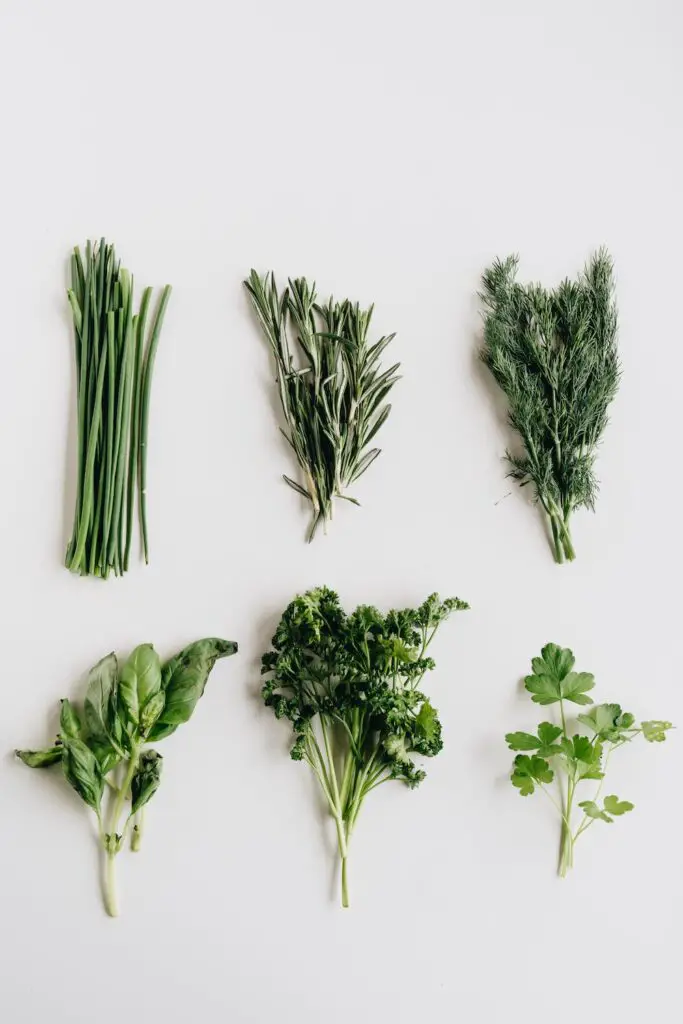Growing herbs as indoor plants can be a fun and rewarding activity for anyone who loves cooking, gardening, or just enjoys the aroma and taste of fresh herbs. Herbs are easy to grow indoors and can be grown all year round, providing a fresh supply of herbs for cooking, teas, and aromatherapy. In this article, we will discuss the benefits of growing herbs indoors, the best herbs to grow indoors, how to choose the right potting soil, light requirements, and tips for successful herb growing.
Table of Contents
Benefits of Growing Herbs Indoors
There are several benefits to growing herbs indoors. First and foremost, growing herbs indoors ensures a fresh supply of herbs all year round. This is particularly beneficial for those who live in areas with long winters or hot summers where outdoor herb growing is difficult or impossible. Indoor herb gardens are also perfect for those who live in small apartments or homes with limited outdoor space.
Growing herbs indoors is also a great way to control the quality of your herbs. You can avoid the use of pesticides and herbicides that are commonly used in outdoor herb gardens. Additionally, indoor herb gardens are less prone to pests and diseases, which can save you time and money on herb treatments.
Indoor herb gardens can also add to the aesthetic appeal of your home. Herbs are a beautiful addition to any indoor space and can help purify the air by removing harmful toxins. Herbs also have a calming effect and can help reduce stress and anxiety.
Best Herbs to Grow Indoors
Not all herbs are suitable for indoor growing. Some herbs require more space, light, and water than others. Here are some of the best herbs to grow indoors:
- Basil: Basil is one of the most popular herbs for indoor growing. It is easy to grow and requires minimal care. Basil prefers warm temperatures, so keep it away from drafty windows or doors. It also requires regular watering to keep the soil moist.
- Parsley: Parsley is another popular herb for indoor growing. It is a biennial herb that can grow up to two years if well-maintained. Parsley prefers cooler temperatures and requires regular watering.
- Thyme: Thyme is a hardy herb that is perfect for indoor growing. It requires full sun and well-drained soil. Thyme prefers cooler temperatures and requires regular watering.
- Rosemary: Rosemary is a popular herb for both cooking and aromatherapy. It requires full sun and well-drained soil. Rosemary prefers warm temperatures and requires regular watering.
- Chives: Chives are easy to grow and require minimal care. They prefer cooler temperatures and regular watering. Chives are perfect for adding flavour to soups, salads, and other dishes.
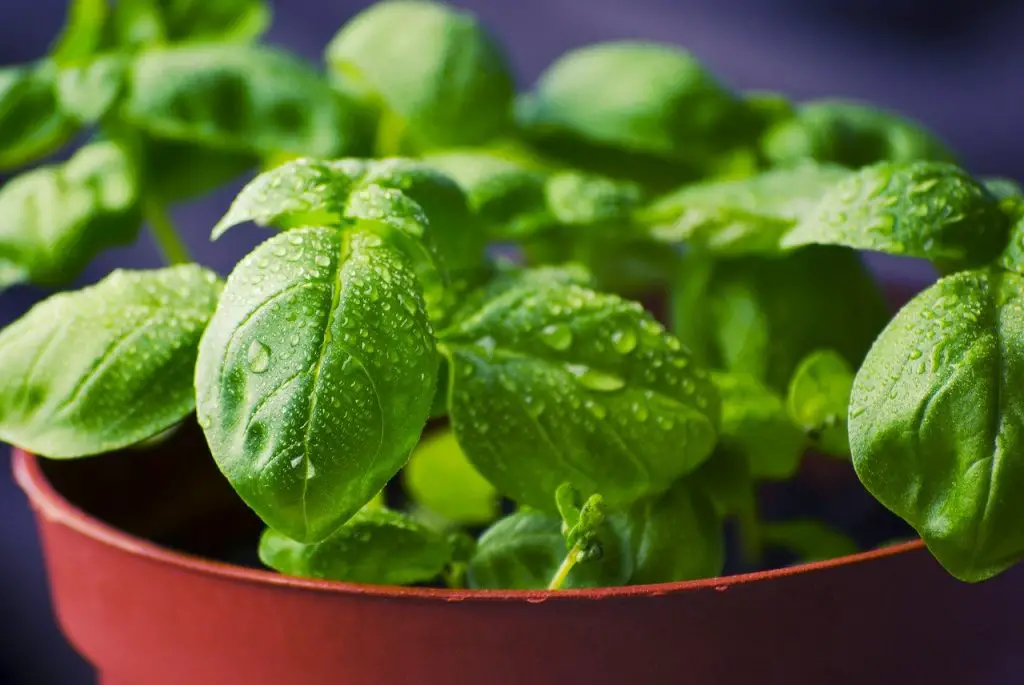
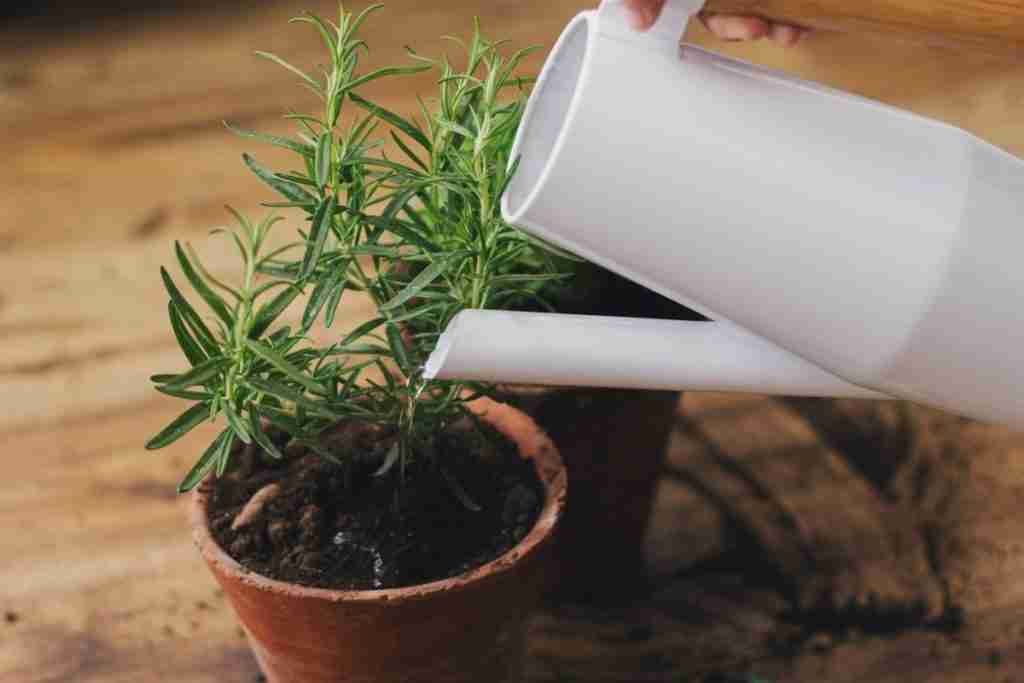
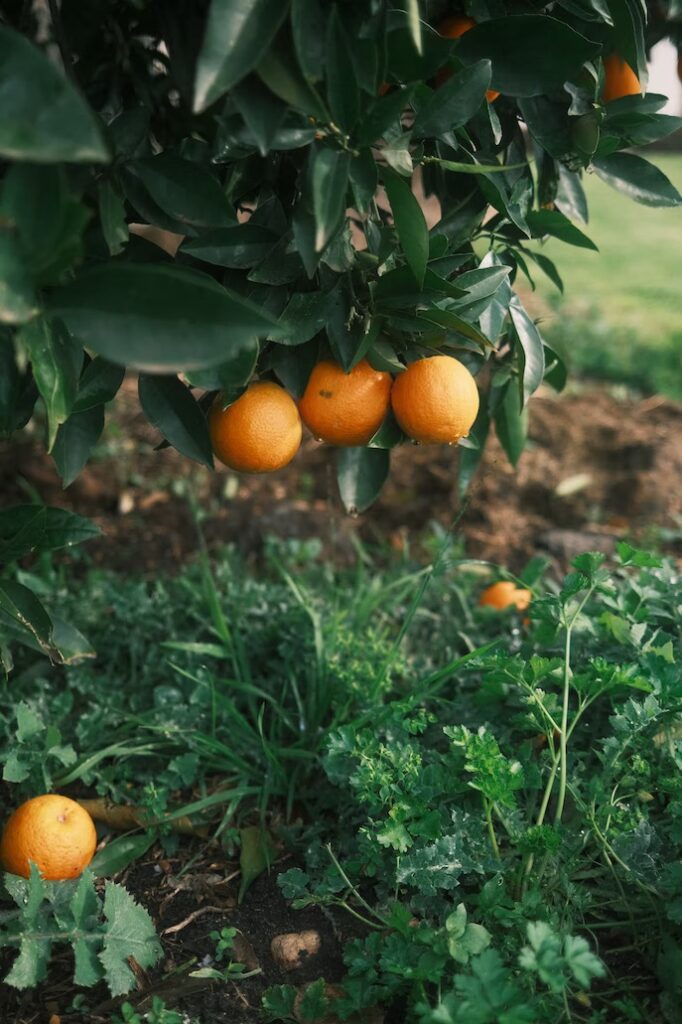
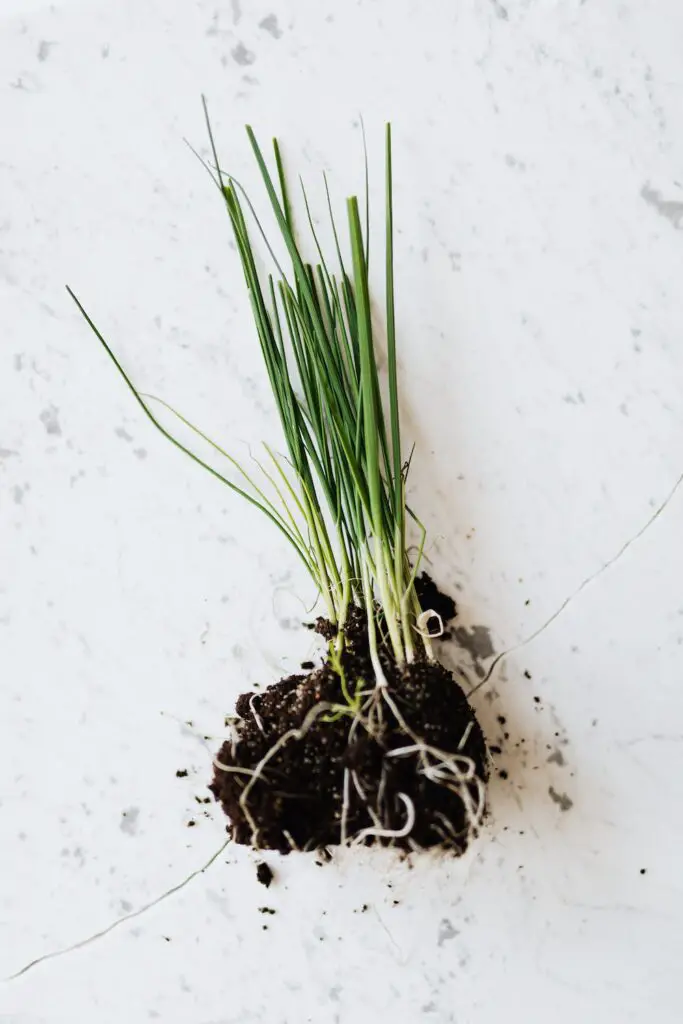
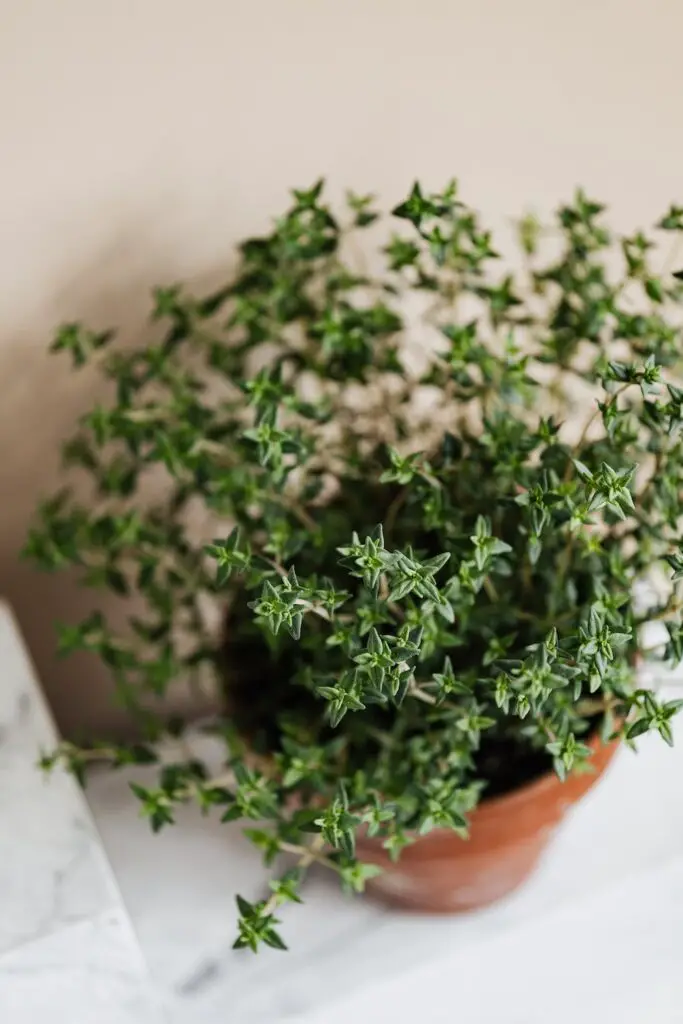
Are indoor herbs perennials?
Indoor herbs can be either annuals or perennials, depending on the specific type of herb. Annual herbs, such as basil and cilantro, have a lifespan of one growing season and will need to be replanted each year. Perennial herbs, such as thyme and rosemary, can live for several years with the right care and maintenance. However, it’s important to note that even perennial herbs may not last forever and may eventually need to be replaced or propagated through cuttings or seeds.
Choosing the Right Potting Soil
Choosing the right potting soil is essential for successful herb growing. Herbs require a well-draining soil that is rich in nutrients. A high-quality potting mix that contains peat moss, vermiculite, and perlite is perfect for growing herbs indoors. The soil should be light and fluffy, allowing for proper drainage and air circulation. Avoid using garden soil for indoor herb growing, as it can contain pests, diseases, and weed seeds. Garden soil is also too heavy and compact for indoor herb growing.
Light Requirements
Light is essential for herb growth. Most herbs require at least six hours of direct sunlight or 12 hours of indirect sunlight per day. If you don’t have a sunny window, you can use grow lights to provide the necessary light for your herbs. Grow lights come in different shapes and sizes, and they can be purchased at your local gardening store or online. LED grow lights are a popular choice for indoor herb growing because they are energy-efficient and emit less heat than other types of grow lights.
Tips for Successful Herb Growing
- Start with Healthy Plants: Choose healthy herb plants that have a strong root system and no signs of pests or diseases. You can purchase herb plants from your local nursery or garden center, or you can start from seed.
- Choose the Right Pot: Choose a pot that is the right size for your herb plant. The pot should be big enough to allow for proper root growth but not so big that the soil becomes waterlogged. A pot that is too small can also limit the growth of your herb plant.
- Use the Right Soil: Choose a high-quality potting mix that is specifically designed for indoor herb growing. The soil should be well-draining and rich in nutrients.
- Water Regularly: Herbs require regular watering to keep the soil moist but not waterlogged. Water your herb plants when the top inch of soil feels dry to the touch. Be careful not to overwater, as this can lead to root rot.
- Provide Adequate Light: Most herbs require at least six hours of direct sunlight or 12 hours of indirect sunlight per day. If you don’t have a sunny window, you can use grow lights to provide the necessary light for your herbs.
- Prune Regularly: Regular pruning will help your herb plant grow bushier and produce more leaves. It will also prevent the plant from becoming too tall and leggy.
- Fertilise Occasionally: Herbs require regular fertilisation to stay healthy and produce a bountiful harvest. Use a high-quality organic fertiliser that is specifically designed for herb plants.
- Rotate Your Plants: Rotate your herb plants every few weeks to ensure that they receive adequate sunlight and air circulation.
- Watch for Pests and Diseases: Keep an eye out for pests and diseases, such as spider mites, whiteflies, and powdery mildew. If you notice any signs of pests or diseases, take action immediately to prevent them from spreading to other plants.
- Harvest Regularly: Harvest your herbs regularly to encourage new growth and prevent the plant from becoming too woody. Be sure to leave some leaves on the plant to allow for continued growth.
- Divide and Repot: Over time, perennial herbs may outgrow their containers and become root-bound. When this happens, it’s important to divide the plant and repot it into a larger container. This will help the plant continue to grow and produce new leaves.
- Provide Winter Care: In colder climates, perennial herbs may need extra care during the winter months. This may include moving the plant to a warmer location, reducing watering, or providing supplemental lighting.

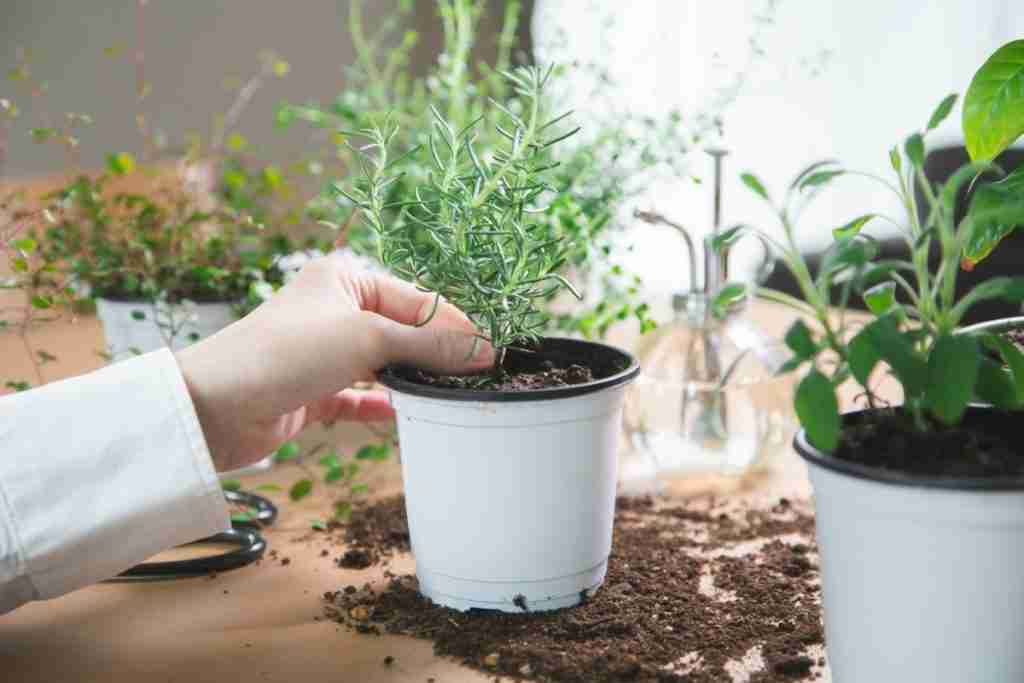
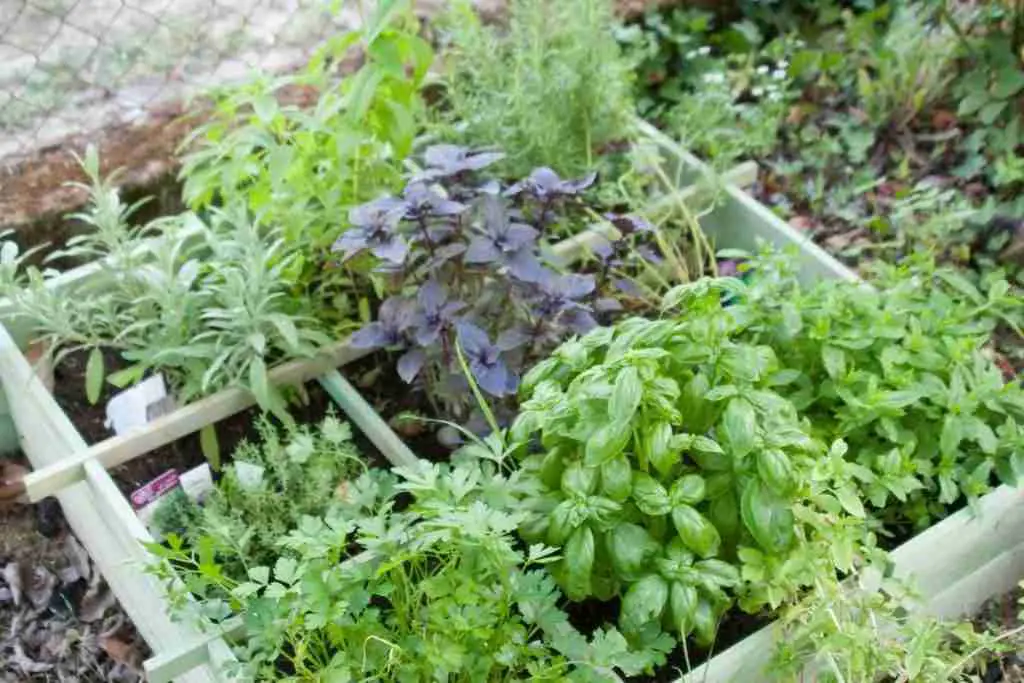
Conclusion
Growing herbs as indoor plants can be a rewarding and enjoyable experience. With the right conditions and care, you can have fresh herbs year-round to add flavour and nutrition to your meals. Remember to choose healthy plants, use the right soil, water regularly, provide adequate light, prune regularly, fertilise occasionally, rotate your plants, watch for pests and diseases, and harvest regularly. With these tips and a little patience, you can successfully grow a variety of herbs in your home, whether you have a green thumb or are just starting out.

